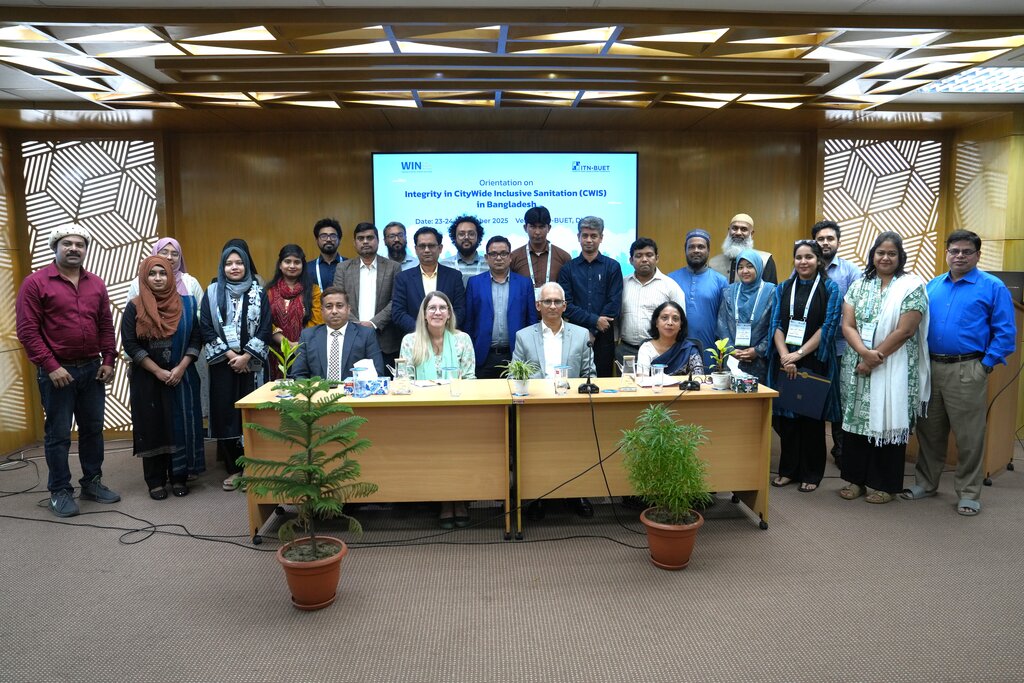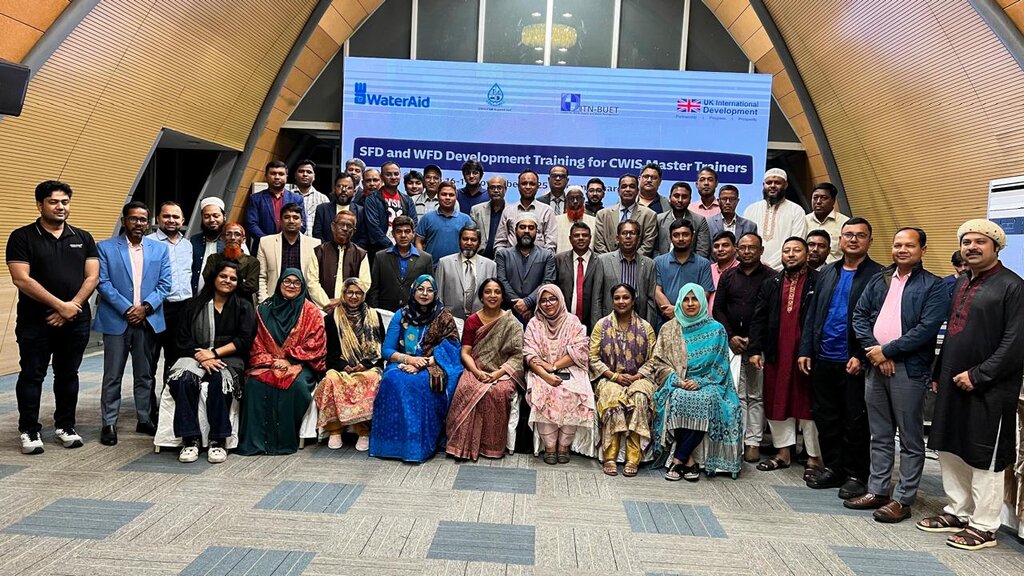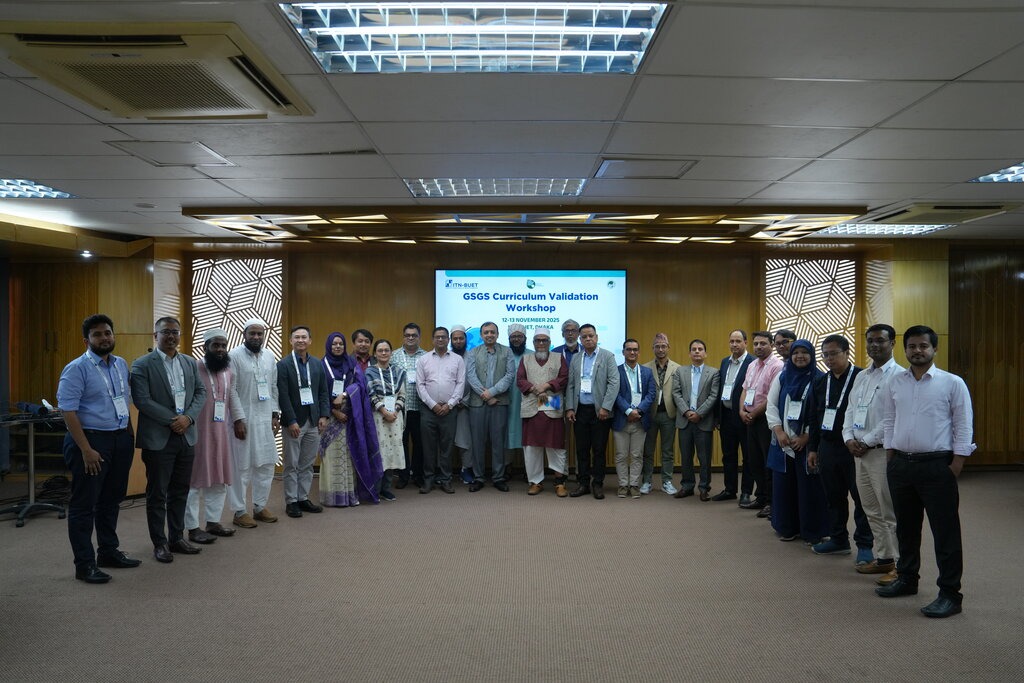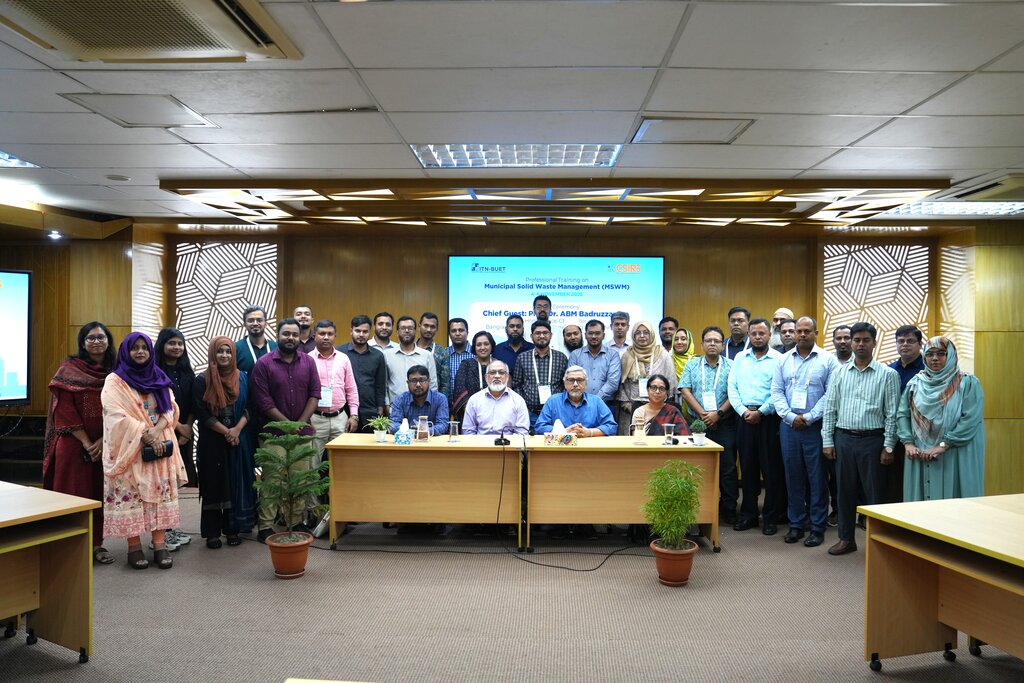Effective planning and designing of a Faecal Sludge Treatment Plant (FSTP) are essential for sustainable and safely managed sanitation. To address these needs, ITN-BUET conducted a three-day training workshop on FSTP planning and designing from 3 to 5 September 2024. 17 participants, including teachers, researchers, engineers, and experts from various technical universities, government agencies, and NGOs, attended the workshop. The diverse group also included 5 women as the participants.
The workshop aimed to equip participants with the essential knowledge and skills for effective planning and designing of FSTPs. Additionally, feedback from both participants and facilitators was collected to further refine and optimize the “Training Manual on FSTP Planning and Designing,” developed by ITN-BUET, ensuring its enhanced relevance and applicability to real-world situations.
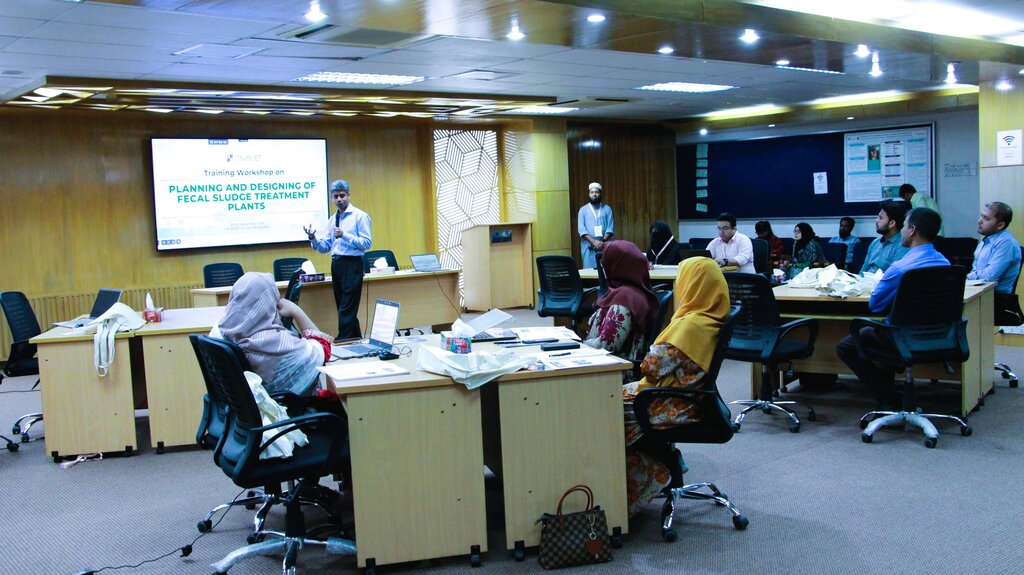
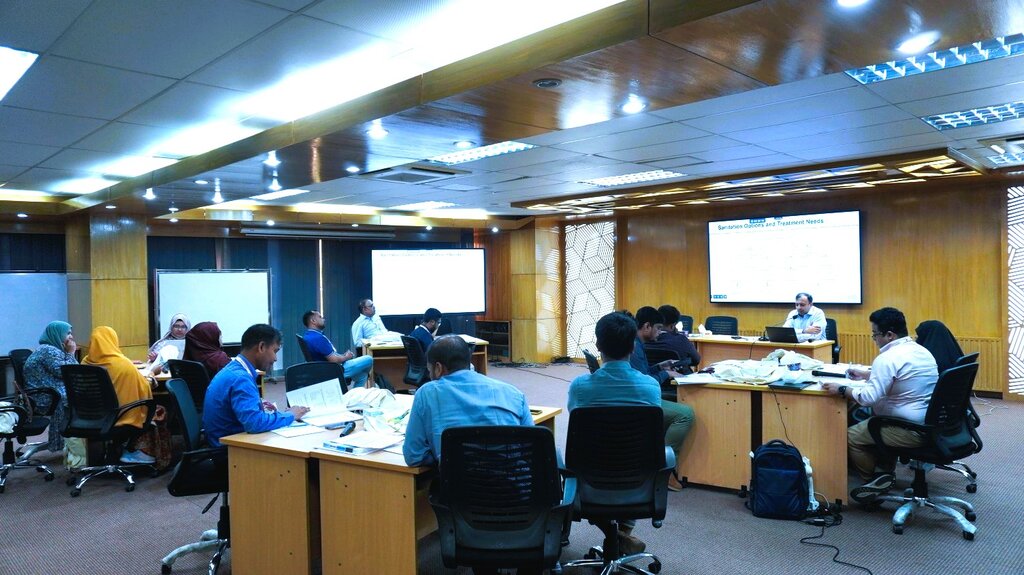
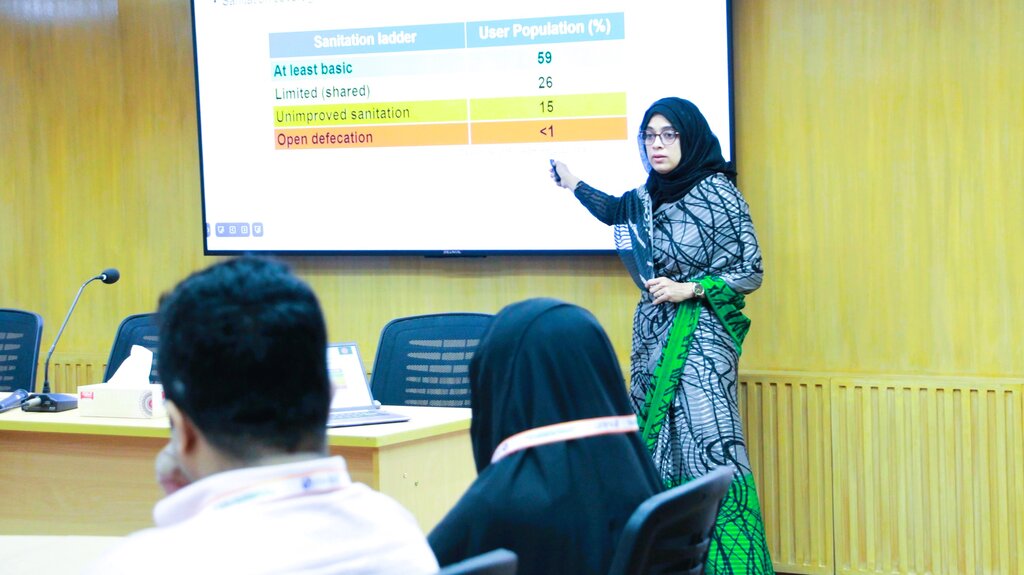
The workshop followed a curriculum that addressed critical topics such as an overview of safely managed sanitation, treatment mechanisms, and the design of various treatment technologies. It also emphasised the practical aspects of operation, maintenance, and co-treatment solutions, including biosolids management and co-composting systems. After each session, participants and facilitators provided feedback on the session content to ensure continuous improvement.
The workshop’s key resource persons included Prof. Dr Tanvir Ahmed, Director of ITN-BUET; Dr Asiful Hoque, Professor in the Civil Engineering Department at Chittagong University of Engineering & Technology (CUET); Dr Muhammad Azizul Hoque, Professor in the Civil & Environmental Engineering Department at Shahjalal University of Science and Technology (SUST); Dr Nehreen Majed, Professor and Head of the Civil Engineering Department at the University of Asia Pacific (UAP); Dr Tanveer Ferdous Saeed, Professor in the Civil Engineering Department at UAP; Mr Alauddin Ahmed, Project Manager of ITN-BUET; and Mr Md Azizur Rahman, Research Officer of ITN-BUET.
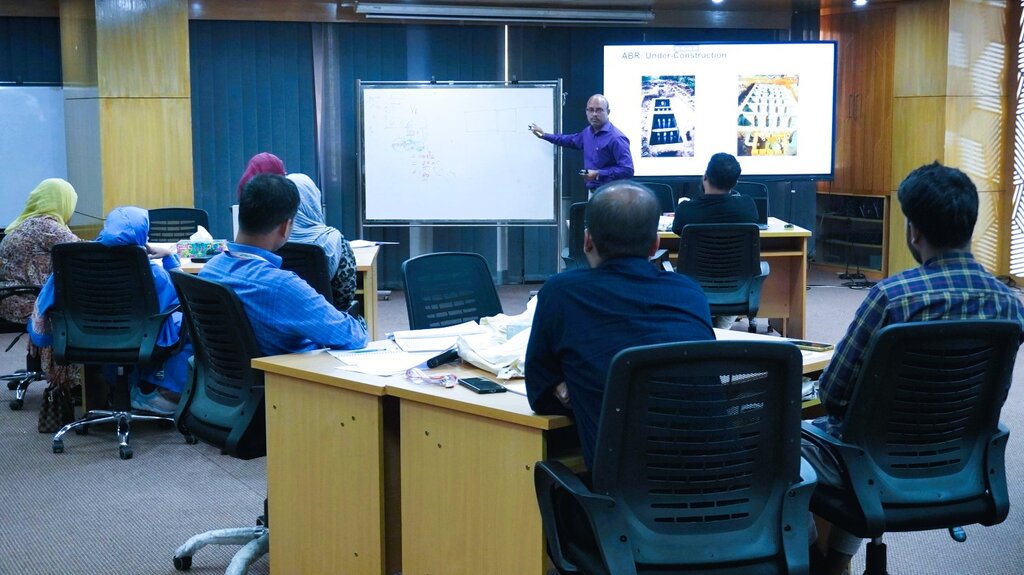
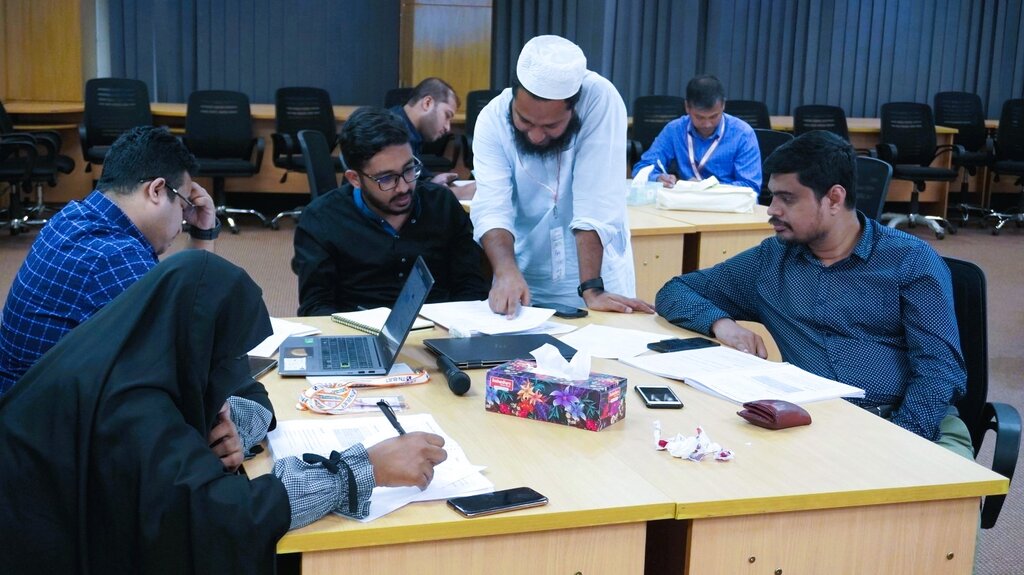
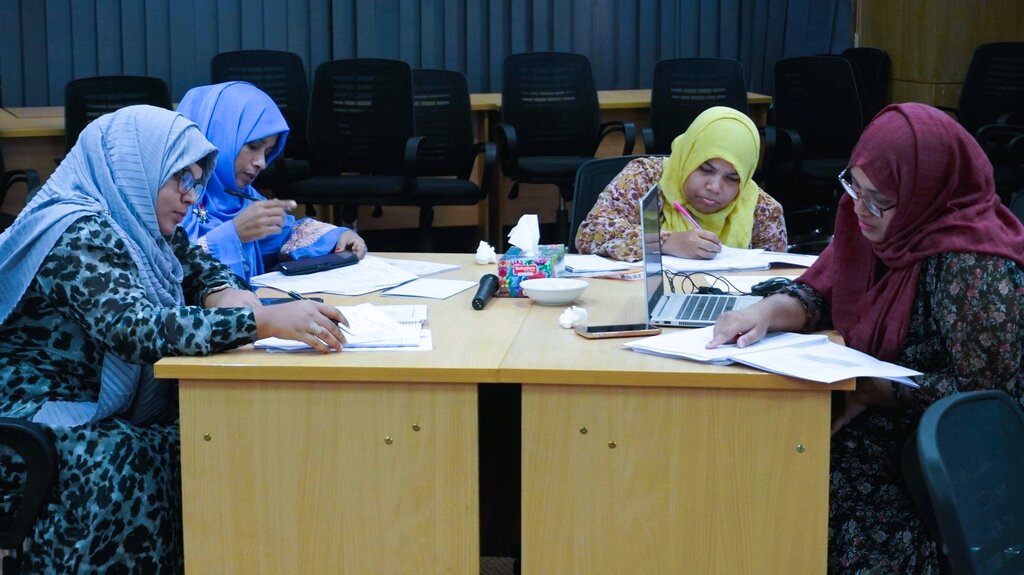
Participant Ms Tajkia Syeed Tofa recommended incorporating references for empirical equations and parameter values specific to the design of FSTPs in Bangladesh. She also suggested that adding case studies and field visits would enhance the value for participants. Similarly, Mr Sumon Ali proposed including a flowchart outlining the steps of various treatment technologies, accompanied by real-field snapshots, to help participants better understand the treatment process.
The workshop enhanced participants’ technical skills in planning and designing FSTPs. Through hands-on design exercises, participants gained practical experience that they will apply in real-world situations. Besides, the workshop strengthened their capacity to implement sustainable faecal sludge treatment systems for improved sanitation infrastructure in their respective regions.
Feedback from participants and facilitators will help refine the training manual to address regional challenges in planning and designing FSTPs and ensure safely managed sanitation. This input will also be used to develop a high-quality training module that can serve as the foundation for advanced training programmes.


